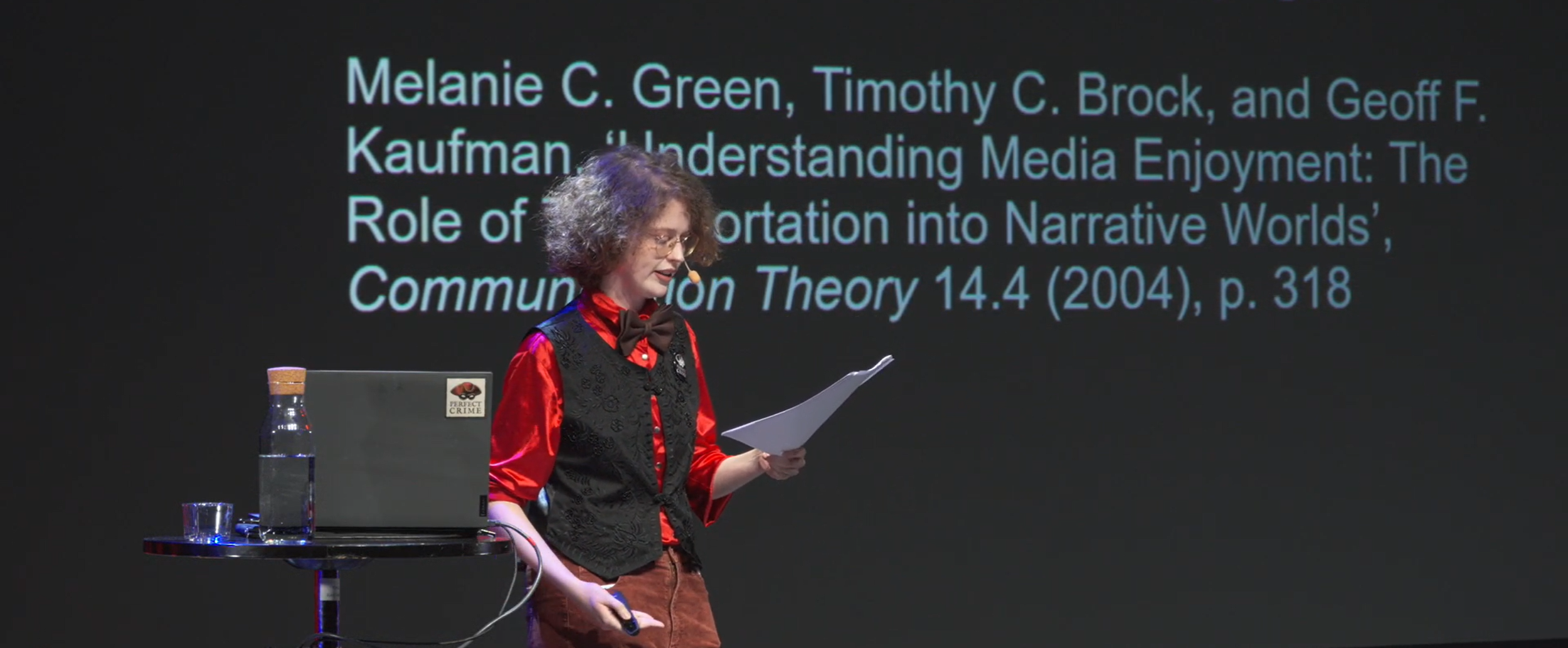
Lectures
I give talks about under-discussed aspects of game design relating to my career experience, as well as general game design seminars for Universities.
Game design history is still an understudied cultural field, and I aim for my conference talks to provide a overview of how a design feature has evolved across time. Rather than just talking about myself, I aim to talk about how we can innovate within game design by learning from the past, or bring back forgotten cool design elements for a new generation!
I’ve spoken at:
Northern Game Summit Kajaani (Keynote)
Develop: Brighton
Nordic Game
Gamescom (Devcom)
Games Gathering Bratislava
EGX
Bristol University
Queen Mary University
Talking about Dark Urge x Gortash MPREG to 600 people at Nordic Game 2024
Lecture: The Tragic Story of Comedy Games
There are very many games which provide comedic moments which propel themselves into memes. There are very few games whose entire agenda is: ‘I am going to tell a series of scripted jokes, eccentric lines, contain ridiculous caricatures, and you are going to laugh like mad.’
We associate this trend with the lost art of 90s point and click, and those who want to make comedic games are often chasing the dragon of trying to make adventure games themselves. Humour is a thing of the past, when the limited technical nature of games themselves needed self-awareness to cover their flawed tracks. Now mainstream studios will almost never consider humour to be a worthwhile primary genre to pursue in their work.
It is seen to be impossible. If you build an entire game off of a parodic principle, that single idea is going to wear thin after a few hours. We don’t have the rapid-fire pacing of a twenty-minute sitcom episodes on our side: if you make a funny game with plot, you are going to have to give the characters you created as one-off caricatures development when they come back hours down the line, or stick to making an entire joke skill tree. But almost every game that has been made with the idea that it is going to tell a funny story ends up doing exactly that: it outlives the single joke that was the first gimmick which brought players to it in the first place. And thus, comedy games are seen as unfortunate risks.
When I worked as a Game Designer on Crusader Kings III, my role was to write the joke events, day in and out, for over a year. I chose to occupy that niche.
Looking at the sublime within the absurd, I talk about the rocky history of games which try and present themselves as long-form comedy, the greater difficulties that creating developed comedy worlds presents in games than other media, and a few forgotten indie geniuses who I think pull it off in the most magnificent of ways.
Lecture: Romance in Games
An analysis of why romance arcs matter so much to players, in terms of representation, community, and personally.
There are few other parts of game design which can make such a life-defining impact on players. This is the feature which causes a portion of the playerbase to take to their computer and write a literal million words of character analysis. This is the feature which causes people to recontexualise their own relationships and break up with their partner of ten years. For some people, it will shape the philosophy of desire in their brain for years to come.
We deserve to give players better than seeing sex as some kind of gameplay reward. I think we all know this, but developer after developer will still underplay romance features and ship some very brief, or very soulless versions of the feature - and treating it like it’s a bit of an embarrassing thing to include in your game.
From my experience leading the feature on Baldur’s Gate 3, I talk about how we can depict more compelling romance stories in games.
